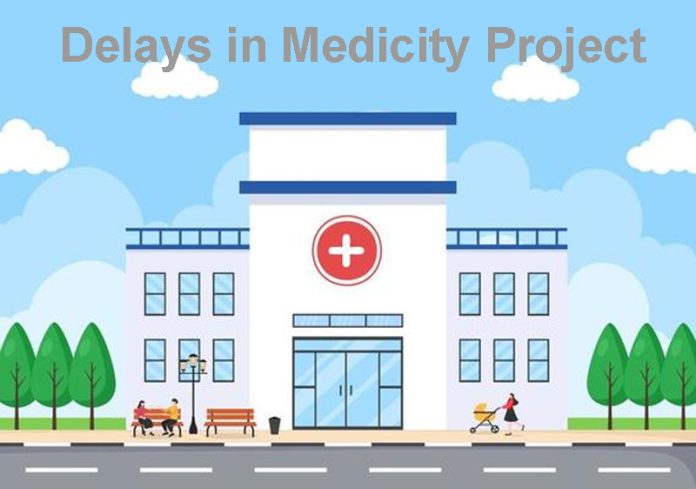The establishment of Medicity at Miran Sahib in Jammu, a project of immense potential, has been mired in bureaucratic delays and logistical hurdles, primarily due to the persistent issue of redundant material left by Jammu and Kashmir Industries Limited. Despite completing all procedural formalities, including administrative approvals and contract allotments, the project remains stalled, reflecting a systemic inefficiency that hampers progress and public welfare. In December 2021, the Jammu and Kashmir Administrative Council approved the establishment of two Medi-cities, one each in Sempora, Pampore in Kashmir Valley, and Miran Sahib in Jammu division. This initiative aimed to bolster health services in the Union Territory and enhance disaster resilience by improving the Government’s capacity to respond swiftly to emergencies. The choice of Miran Sahib for the Jammu division’s Medicity, given its proximity to the main city, was strategic and well-justified. However, the envisioned progress has been elusive.
The core issue stems from the redundant material occupying the identified land. This material, remnants of an erstwhile JKI facility, was supposed to be cleared promptly to pave the way for the Medicity’s development. Despite the Government’s administrative approval and the subsequent allotment of a contract for essential infrastructure works like fencing, road construction, and power supply, the redundant material remains, stalling the project’s commencement. The recurring failure of tenders for lifting the scrap underscores a deeper problem in the administrative and operational mechanisms. Seven tenders have been floated, all unsuccessfully, for various reasons, including an absurdly high bid of Rs 22 crore by one company, starkly contrasting with the previous highest bid of around Rs 5 crore. This discrepancy indicates either a lack of clear guidelines or possible malpractices that require stringent scrutiny.
The delay in clearing the redundant material is not merely a logistical setback; it represents a significant missed opportunity for the region’s healthcare development. The Medicity project promises to bring advanced medical facilities, including hospitals, medical colleges, paramedic colleges, and diagnostic labs with research centres, to the area. These facilities are crucial for enhancing the healthcare infrastructure, providing better medical education, and creating job opportunities, thereby contributing to the region’s overall socio-economic development. Once operational, it will offer state-of-the-art medical facilities, reducing the dependency on other areas for advanced medical care. It will also foster medical research and education, attracting talent and investment, thereby creating a healthcare hub in the region. Furthermore, the delay in commencing the project undermines public trust in administrative efficiency and the Government’s commitment to improving healthcare services. The Government’s proactive measures, such as setting up a high-level committee to resolve the issue, are commendable but should have been implemented much earlier to avoid such prolonged delays.
The repeated failure to remove the redundant material also reflects poorly on the operational efficacy of JKI and the responsible authorities within the Industries and Commerce Department. There needs to be a more robust and transparent process for handling such issues, with clear accountability and timelines. The involvement of high-level committees should not be an ad-hoc solution but a standard practice for resolving significant bottlenecks in critical projects. This situation highlights the need for a comprehensive review and possible overhaul of the tendering process. The process should be transparent, competitive, and immune to manipulative practices. Establishing a pre-qualification criterion for bidders could prevent unrealistic bids and ensure only competent and serious bidders participate. This approach would not only expedite the process but also ensure cost-effectiveness and quality. This project is not just about building infrastructure; it is about building trust, enhancing public welfare, and showcasing the Government’s commitment to the region’s holistic development. The people of Jammu deserve better healthcare facilities, and it is incumbent upon the authorities to deliver on this promise.
Trending Now
E-Paper


